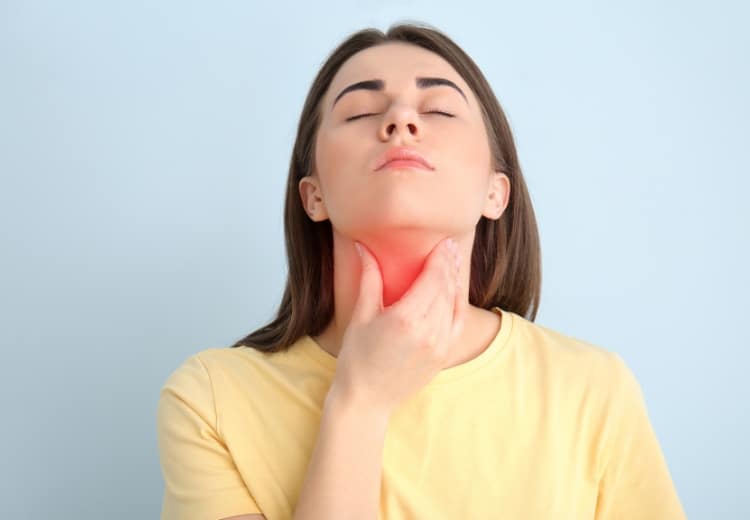Anxiety Attack | Types, Causes, Symptoms, and Treatment
Anxiety is a natural and common human experience characterized by feelings of worry, nervousness, or fear about future events, situations, or outcomes. It’s a normal stress response and can be triggered by various factors such as work pressure, financial concerns, relationship issues, or major life changes.
What are the different types of anxiety?
There are several different types of anxiety disorders, each characterized by specific symptoms and triggers. These disorders can vary in severity and impact on daily functioning.
Common types of anxiety disorders are given below.
Generalized Anxiety Disorder (GAD): GAD is characterized by persistent and excessive worry about various aspects of life, such as work, relationships, health, or finances. Individuals with GAD often experience physical symptoms such as muscle tension, restlessness, fatigue, irritability, and difficulty concentrating.
Panic Disorder: Panic disorder involves recurrent and unexpected panic attacks, which are sudden episodes of intense fear or discomfort accompanied by physical symptoms such as chest pain, heart palpitations, shortness of breath, dizziness, or sweating. Panic attacks can occur unexpectedly or in response to specific triggers.
Social Anxiety Disorder (Social Phobia): Social anxiety disorder is characterized by an intense fear of social situations or scrutiny by others. Individuals with social anxiety may avoid social interactions or situations where they feel they may be judged or embarrassed. Physical symptoms include sweating, trembling, blushing or nausea.
Specific Phobias: Specific phobias involve intense and irrational fears of specific objects, situations, or activities. Common phobias include fear of heights (acrophobia), fear of spiders (arachnophobia), fear of flying (aviophobia), or fear of enclosed spaces (claustrophobia). Individuals with specific phobias may go to great lengths to avoid their feared stimuli.
Obsessive-Compulsive Disorder (OCD): OCD is characterized by intrusive, unwanted thoughts (obsessions) and repetitive behaviours or rituals (compulsions) performed in response to these thoughts. Obsessions may include fears of contamination, fears of harming oneself or others, or a need for symmetry or order. Compulsions are often performed to reduce anxiety or prevent perceived harm.
Post-Traumatic Stress Disorder (PTSD): PTSD can develop after experiencing or witnessing a traumatic event, such as a natural disaster, combat, physical assault, or car accident. Symptoms may include intrusive memories or flashbacks of the event, nightmares, hypervigilance, avoidance of reminders of the trauma, and changes in mood or cognition.
Separation Anxiety Disorder: Separation anxiety disorder is most commonly diagnosed in children but can also occur in adults. It involves excessive fear or anxiety about separation from attachment figures, such as parents or caregivers, leading to distress when separated from them.
These are just a few examples of the various types of anxiety disorders that can affect individuals. It’s essential to recognize that anxiety disorders are treatable, and individuals experiencing symptoms should seek help from a mental health professional for diagnosis and treatment.
What are Common Causes of Anxiety?
Genetic Factors: Inherited traits and genetic predispositions can play a significant role in the development of anxiety disorders.
Environmental Stressors: High-stress environments, such as work pressure, financial difficulties, or relationship problems, can trigger or exacerbate anxiety symptoms.
Traumatic Events: Past traumatic experiences, including physical or emotional abuse, accidents, or natural disasters, can contribute to the development of anxiety disorders.
Chronic Illness: Living with chronic health conditions or experiencing chronic pain can increase vulnerability to anxiety.
Neurochemical Imbalances: Imbalances in brain chemistry, such as fluctuations in neurotransmitters like serotonin or dopamine, can contribute to the onset of anxiety disorders.
Personality Factors: Certain personality traits, such as perfectionism, pessimism, or a tendency to overthink, may predispose individuals to anxiety disorders.
Substance Abuse: Misuse or dependence on substances like alcohol, drugs, or prescription medications can exacerbate anxiety symptoms or trigger anxiety disorders.
Childhood Trauma: Adverse childhood experiences, such as neglect, parental separation, or emotional trauma, can have long-term effects on mental health, increasing the risk of these disorders later in life.
Brain Structure and Function: Variations in brain structure or functioning, such as abnormalities in the amygdala or prefrontal cortex, may contribute to the development of these disorders.
Social Factors: Social isolation, lack of social support, or exposure to discrimination or stigma can contribute to feelings of anxiety and exacerbate existing anxiety disorders.
What are the Different Signs and symptoms of anxiety?
Excessive Worrying: Individuals with this condition often experience persistent and excessive worrying about future events, situations, or outcomes, even when there is little or no reason for concern.
Increased Heart Rate: This can cause a rapid heartbeat or palpitations, which may feel like the heart is pounding or racing, especially during times of stress or anxiety-provoking situations.
Muscle Tension: This condition commonly leads to muscle tension, resulting in feelings of stiffness, soreness, or tightness in the muscles, particularly in the neck, shoulders, and back.
Sweating: Excessive sweating, particularly in the palms of the hands or underarms, is a common physical symptom of this, often occurring in response to stressful situations or heightened emotions.
Restlessness: People with this condition may feel restless or on edge, unable to relax or sit still, and may experience a constant sense of unease or agitation.
Irritability: This can lead to irritability or a short temper, causing individuals to become easily frustrated, agitated, or angered, even in situations that would not typically provoke such reactions.
Difficulty Concentrating: This can impair concentration and focus, making it challenging to pay attention to tasks, follow conversations, or complete work or school assignments.
Sleep Disturbances: That disorder often disrupts sleep patterns, leading to difficulty falling asleep, staying asleep, or experiencing restful sleep, resulting in feelings of fatigue and exhaustion during the day.
Gastrointestinal Symptoms: This condition can manifest in physical symptoms such as stomachaches, nausea, diarrhea, or other gastrointestinal issues, often referred to as “butterflies in the stomach” or “nervous stomach.”
Panic Attacks: In severe cases, this may lead to panic attacks characterized by sudden and intense feelings of fear or terror, accompanied by physical symptoms such as chest pain, shortness of breath, dizziness, or feelings of impending doom.
Excessive Self-Consciousness: Individuals with this condition may feel excessively self-conscious or hyper-aware of their actions, appearance, or perceived shortcomings, leading to feelings of embarrassment or shame in social situations.
Avoidance Behavior: This condition can lead to avoidance behaviour, where individuals actively avoid situations, places, or activities that they fear may trigger anxiety or panic attacks, resulting in significant disruption to their daily lives.
Hypervigilance: Anxiety can cause hypervigilance, where individuals are constantly on high alert, scanning their environment for potential threats or dangers, even when there is no immediate risk present.
Physical Symptoms without Medical Cause: This often presents with physical symptoms such as headaches, dizziness, chest pain, or shortness of breath, even when there is no underlying medical cause, leading to confusion and frustration for individuals experiencing these symptoms.
Cognitive Distortions: This disorder can distort thinking patterns, leading to negative or catastrophic thoughts about oneself, others, or the future, such as exaggerated fears of failure, rejection, or catastrophe.
Emotional Instability: Anxiety can cause emotional instability, leading to frequent mood swings, outbursts of anger or tears, and difficulty regulating emotions, which can strain relationships and impact overall well-being.
Heightened Startle Response: This may result in a heightened startle response, where individuals react strongly or excessively to sudden noises, movements, or unexpected stimuli, feeling jumpy or on edge.
Depersonalization or Derealization: In severe cases, This may lead to feelings of depersonalization (detachment from oneself) or derealization (detachment from one’s surroundings), causing individuals to feel disconnected from reality or as if they are in a dreamlike state.
Impaired Social Functioning: This can impair social functioning, making it difficult for individuals to engage in social activities, maintain relationships, or participate in work or school-related interactions due to fear of judgment, rejection, or embarrassment.
What are different preventive measures for anxiety?
Managing and preventing this condition involves adopting various strategies and lifestyle changes to promote mental well-being. While professional treatment may be necessary for severe cases, implementing preventive measures can help individuals manage symptoms and reduce their impact on daily life. Here are several effective preventive measures:
Regular Exercise: Engaging in regular physical activity, such as walking, jogging, yoga, or swimming, can help reduce anxiety levels by releasing endorphins, the body’s natural stress relievers.
Healthy Diet: Consuming a balanced diet rich in fruits, vegetables, whole grains, lean proteins, and healthy fats provides essential nutrients that support brain function and mood regulation. Avoid excessive consumption of caffeine, sugar, and processed foods, as they can exacerbate the symptoms.
Adequate Sleep: Prioritize quality sleep by maintaining a regular sleep schedule, creating a relaxing bedtime routine, and ensuring a comfortable sleep environment. Aim for 7-9 hours of uninterrupted sleep each night to help regulate mood and reduce vulnerability to this disorder.
Stress Management Techniques: Practice stress-reduction techniques such as deep breathing exercises, progressive muscle relaxation, meditation, or mindfulness to promote relaxation and reduce anxiety levels. These techniques can help individuals stay grounded in the present moment and cope effectively with stressors.
Limiting Alcohol and Caffeine: Limiting the consumption of alcohol and caffeine, which can exacerbate anxiety symptoms and disrupt sleep patterns, can help manage anxiety. Instead, opt for non-caffeinated beverages like herbal tea or water to stay hydrated and calm.
Seeking Social Support: Maintaining strong social connections and seeking support from friends, family, or support groups can provide emotional support and practical assistance in coping with anxiety. Sharing concerns and experiences with trusted individuals can help alleviate feelings of loneliness and isolation.
Setting Realistic Goals: Set achievable goals and prioritize tasks to avoid feeling overwhelmed by responsibilities. Break larger tasks into smaller, manageable steps, and celebrate progress along the way to boost self-esteem and reduce anxiety.
Limiting Exposure to Triggers: Identify and limit exposure to triggers that exacerbate anxiety, such as stressful environments, negative news or social media, or situations that evoke fear or panic. Establish boundaries and practice self-care to protect mental well-being.
Professional Help: If symptoms persist or significantly interfere with daily functioning, consider seeking professional help from a therapist, counselor, or psychiatrist. Cognitive-behavioral therapy (CBT), medication, or other evidence-based treatments can provide effective relief for anxiety disorders.
By incorporating these preventive measures into daily routines and prioritizing mental health, individuals can take proactive steps to manage this and improve overall well-being. Remember that finding the right combination of strategies may require experimentation and persistence, but the benefits of reduced anxiety are well worth the effort.
Frequently Asked Questions (FAQs)
Can anxiety be cured completely?
While these disorders can be managed effectively with treatment and lifestyle changes, a complete cure may not always be possible. However, many individuals experience significant improvement in symptoms with proper care.
Are there any natural remedies for anxiety?
Some natural remedies, such as herbal supplements, relaxation techniques, and dietary adjustments, may help alleviate symptoms. However, it’s essential to consult with a healthcare professional before trying any new treatment.
Can anxiety be triggered by certain foods?
While specific foods may not directly cause this, consuming excessive caffeine, sugar, or processed foods can worsen symptoms in some individuals. A balanced diet is essential for supporting overall mental health.
Is it normal to feel anxious in certain situations?
Occasional feelings of anxiety in response to stressful or challenging situations are normal. However, if this becomes overwhelming or persistent, it may indicate an underlying disorder that requires attention.
How can I support a loved one struggling with anxiety?
Offering empathy, listening without judgment, and encouraging them to seek professional help are essential ways to support someone experiencing anxiety. Educating yourself about these disorders can also help you provide effective support.
Also Read: What Is Blurred Vision? | Causes, Symptoms, Treatment






